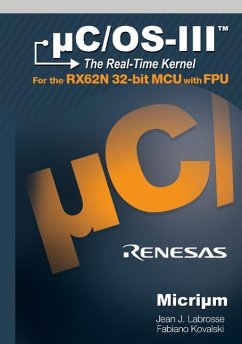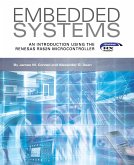This two-part book puts the spotlight on how a real-time kernel works using Micrium's ¿C/OS-III kernel as a reference. Part I includes an overview of the operation of real-time kernels, and walks through various aspects of ¿C/OS-III implementation and usage. Part II provides application examples (using the versatile Renesas YRDKRX62N Evaluation Board, available separately) that enable readers to rapidly develop their own prototypes. This book is written for serious embedded systems programmers, consultants, hobbyists, and students interested in understanding the inner workings of a real-time kernel. ¿C/OS-III is not just a great learning platform, but also a full commercial-grade software package, ready to be part of a wide range of products. ¿C/OS-III is a highly portable, ROMable, scalable, preemptive real-time, multitasking kernel designed specifically to address the demanding requirements of today¿s embedded systems. ¿C/OS-III is the successor to the highly popular ¿C/OS-II real-time kernel but can use most of ¿C/OS-II¿s ports with minor modifications. Some of the features of ¿C/OS-III are: Preemptive multitasking with round-robin scheduling of tasks at the same priority Supports and unlimited number of tasks and other kernel objects Rich set of services: semaphores, mutual exclusion semaphores with full priority inheritance, event flags, message queues, timers, fixed-size memory block management, and more. Built-in performance measurements








